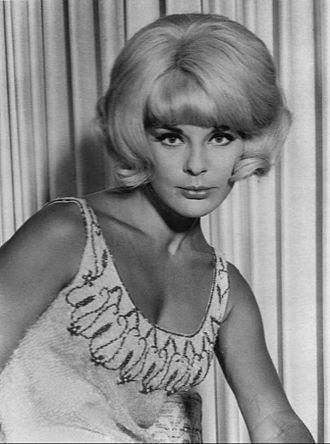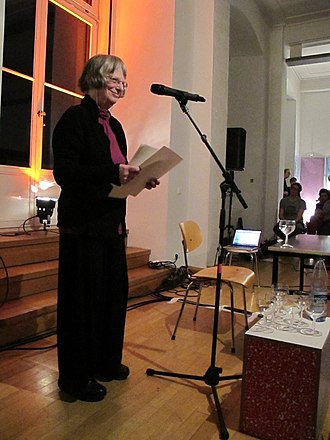Discover Your Roots
SIGN UPDiscover Your Roots
SIGN UPElke is a lovely female name of Dutch origin, meaning "Noble, Kind." It is a diminutive of Adelheid, which signifies "of noble birth" in Low German and East Frisian. Another source suggests that it is a Yiddish feminine variant of Elkan, derived from the Biblical name Elkanah. In addition to Elke, other German variants of the name include Elka and Alke. This name gained popularity in English-speaking countries, with the variant Elkie being popularized by the singer Elkie Brooks. In the United States, Elke was the 2,588th most common given name for women in the 1990 census. Several notable individuals bear the name Elke, including actresses, athletes, and politicians. Overall, Elke is a name with a rich and noble meaning, embodying kindness and grace.

Elke Sommer, born on November 5, 1940, in Berlin, is a renowned German actress who gained fame for her roles in films during the 1960s and 1970s. Notable appearances include The Pink Panther sequel "A Shot in the Dark" (1964), "Boy, Did I Get a Wrong Number!" (1966), Agatha Christie's "And Then There Were None" (1974), and the British Carry On series in "Carry On Behind" (1975). Sommer's career took off after being discovered by film director Vittorio De Sica while on holiday in Italy. She soon became a sex symbol and moved to Hollywood in the early 1960s, appearing in numerous films and TV shows. Her success continued through the 1970s with roles in "Zeppelin," a remake of Agatha Christie's "Ten Little Indians," and several European films. In addition to acting, Sommer also pursued a career as a singer, recording and releasing several albums. Later in her career, she focused more on painting than acting, showcasing her work which reflects a strong influence from Marc Chagall. Sommer is also known for her multilingual abilities, speaking seven languages fluently. In 2001, she was honored with a Golden Palm Star on the Palm Springs Walk of Stars.

Elke Hoff, born on June 20, 1957, is a prominent German politician and former member of the Free Democratic Party in the Bundestag. Hoff's academic journey began with her completion of the Abitur in 1976, followed by studies in German, philosophy, and political science at the University of Frankfurt. She furthered her career by training as a real estate management clerk in 1982 and then worked as a public relations officer for industry federations in the construction and healthcare sectors from 1985 to 1991. Hoff's dedication to public service led her to serve as a full-time district councillor in Neuwied from 1992 to 2000, where she was responsible for various economic and construction portfolios. Her commitment to regional development then saw her taking on the role of head of regional planning in Koblenz. In 2005, Hoff made her mark in national politics when she was elected to the Bundestag, where she notably served on the defence committee and as her party's alternative member of the subcommittee on disarmament, arms control, and non-proliferation. Elke Hoff's contributions to politics and regional development have solidified her as a respected figure in the German political landscape.

Elke Erb (18 February 1938 – 22 January 2024) was a prominent German author-poet, literary editor, and translator based in Berlin. Born in Scherbach, she grew up in a family deeply impacted by the tumultuous events of World War II and post-war Germany. Despite facing disruptions and upheavals during her formative years, Elke Erb pursued her education, obtaining the necessary qualifications to become a teacher of German and Russian. However, she soon realized that a teaching career was not her calling. Transitioning to the literary world, Erb worked as a literary editor and translator, collaborating with influential members of the East German literary establishment. Her writing journey began in 1968 when her first published poems emerged, marking the start of her prolific literary career. She ventured into translation, notably working on texts by renowned authors such as Marina Tsvetaeva, Oleg Alexandrovitch Yuryev, and Olga Martynova. Erb's contributions extended to the annual "Jahrbuch der Lyrik," and she played a pivotal role in the Prenzlauer-Berg literary scene, acting as an inspiration and mentor. Her involvement in the independent peace movement and protests against injustices led to surveillance by the Stasi and challenges from the German Writers' Association. Elke Erb's legacy as a literary trailblazer and influential figure in East German literature endures, leaving an indelible mark on the


All images displayed on this page are sourced from Wikipedia or Wikimedia Commons.We use these images under their respective Creative Commons or public domain licenses. Wherever applicable, author attributions and license information are provided. If you believe an image is used incorrectly or outside its license terms, please contact us so that we can review and correct the issue.